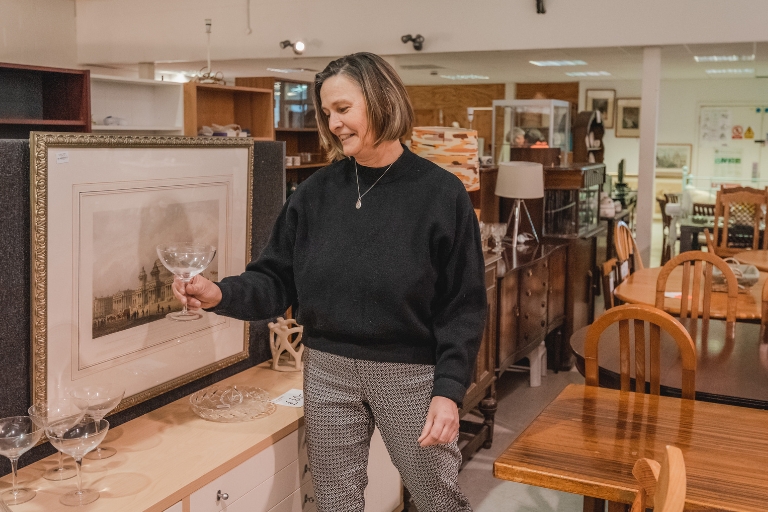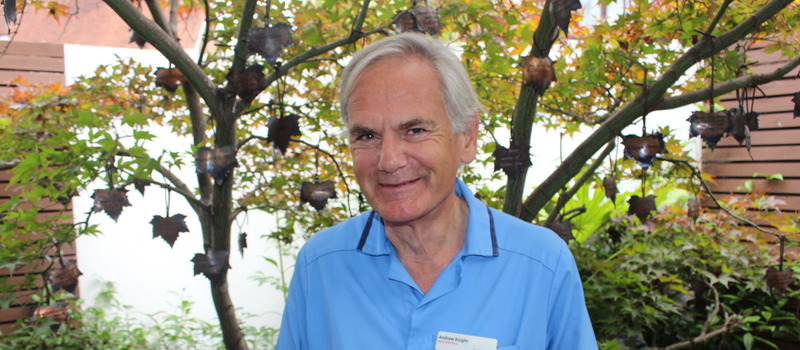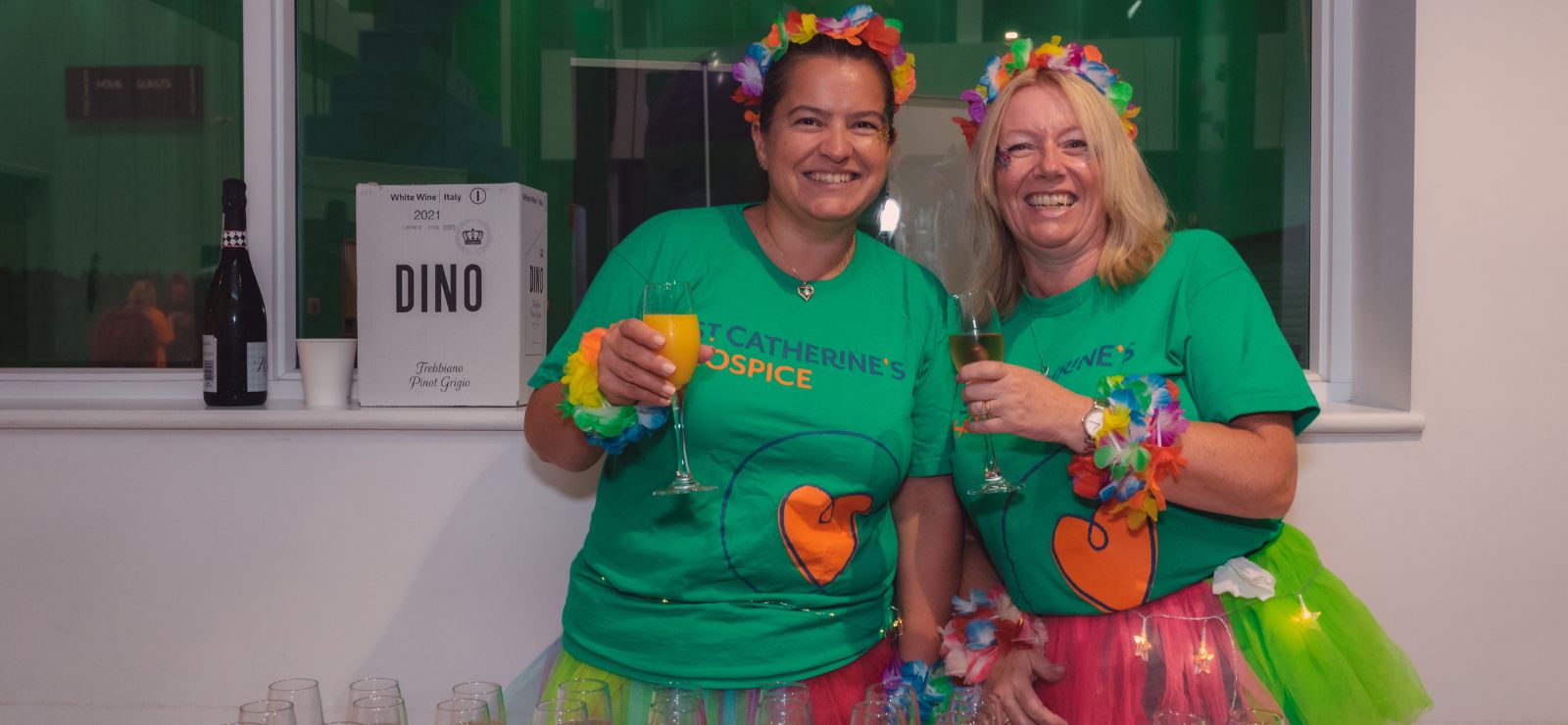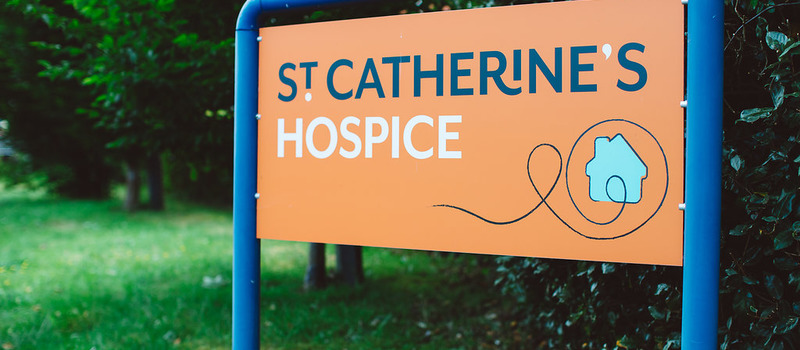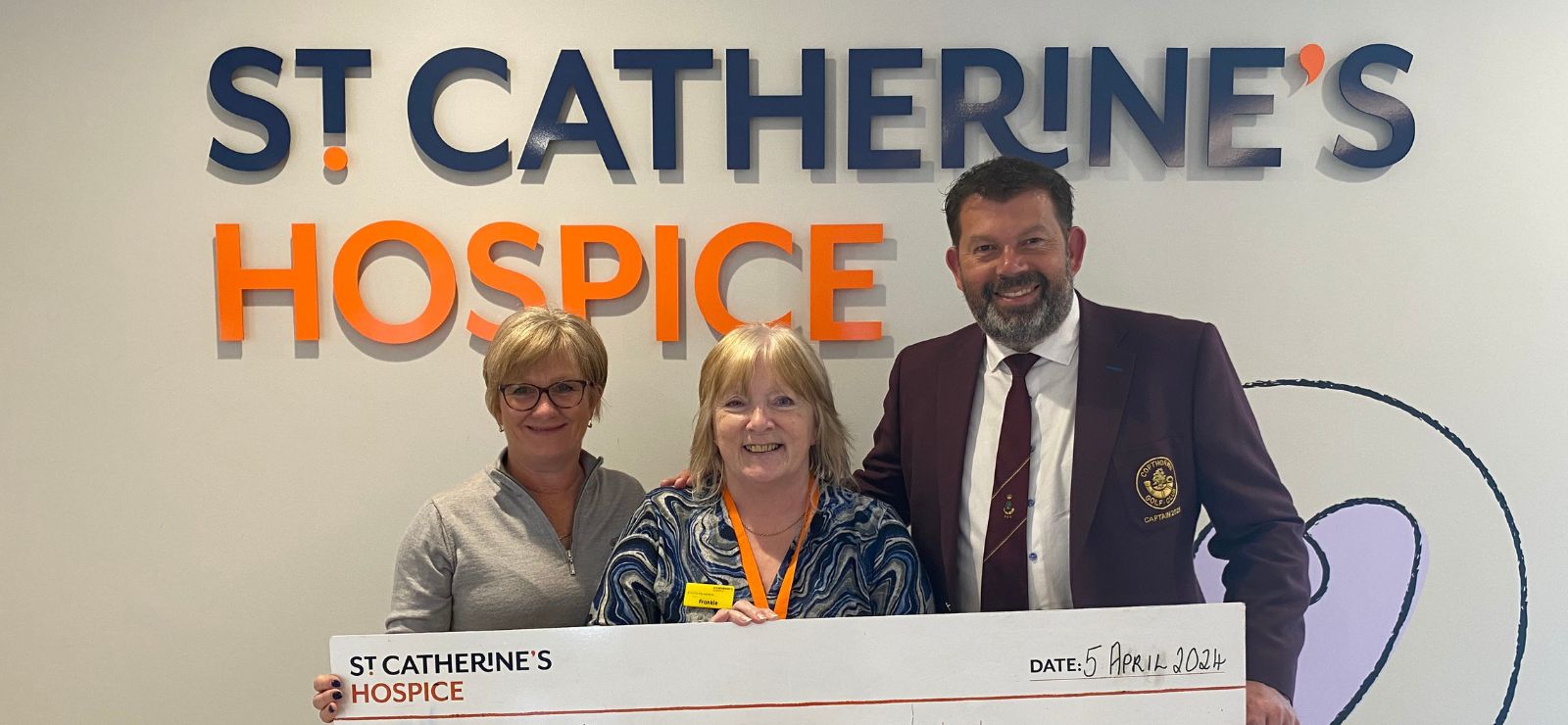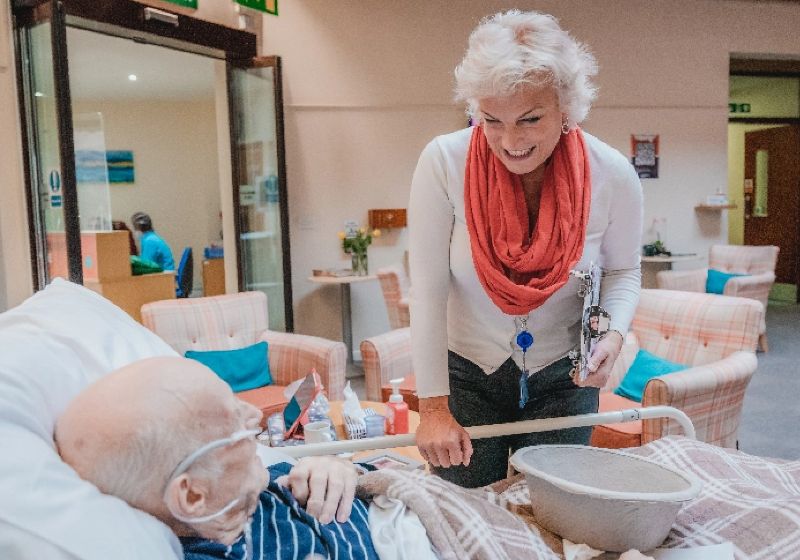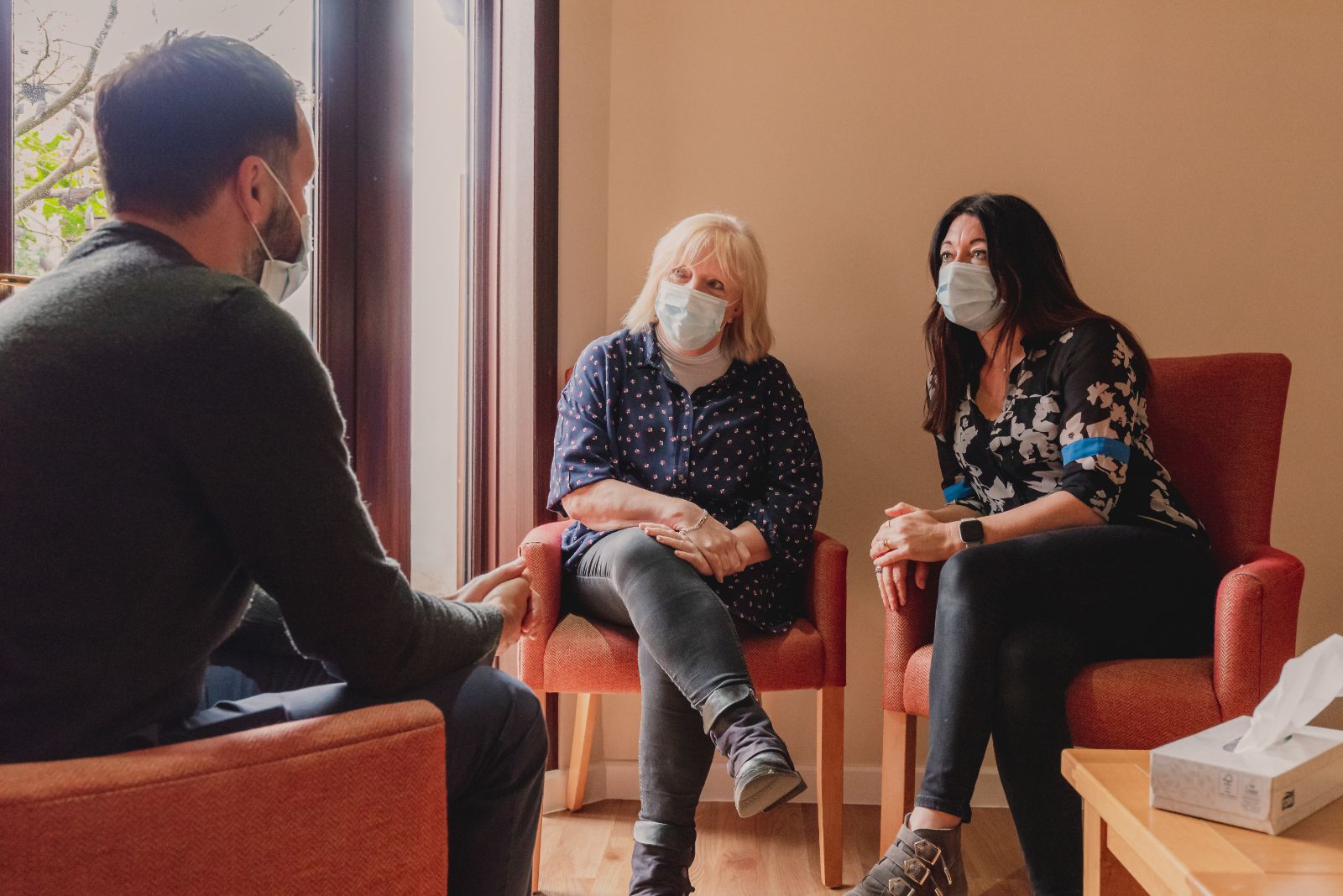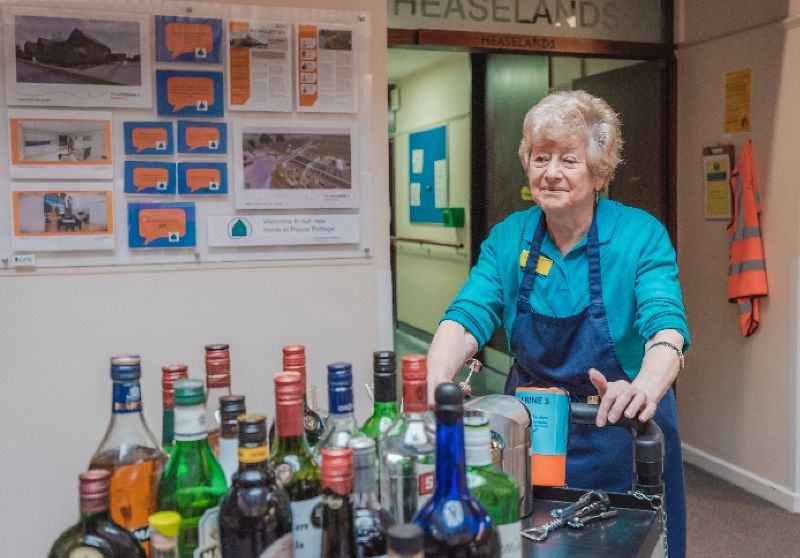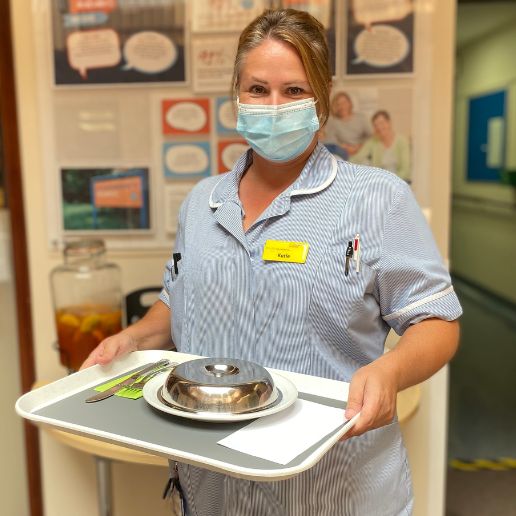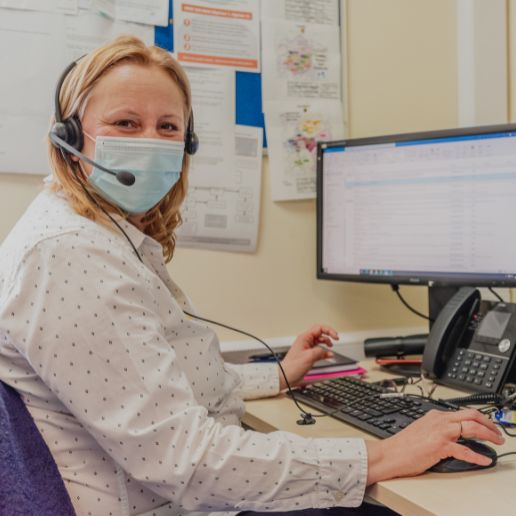What I’ve learnt from working in a hospice
Andrew Knight is a Staff Nurse on our wards. This Dying Matters Week, he reflects on the lessons he’s learnt from 26 years working in hospices caring for people at the end of their life.
“I’ve worked in hospice care for more than half of my career. And I think that I was rather naive when I first went into working in the special place that is a hospice. I began in the deep end as Chief Nurse at St Christopher’s Hospice, the first modern hospice, which was considered to be the go-to hospice for comment about end of life care. Since then, I’ve worked in three hospices and have visited many more. Whilst different in outlook, purpose, and ways of working all hospices are deeply rooted in their own communities, and passionate about providing quality end of life care to local people.
I’ve learnt many things over the years but there are some overarching lessons that I’ve learnt:
Hospice care is vitally important
I often think of a notice that was displayed in a neonatal unit in New York. It said, ‘The first 48 hours are the scariest’, underneath someone had scrawled ‘And the last 48 aren’t so clever either’! They aren’t, but hospice care can make them so much better.
It’s important to talk about death and dying
Just like we discuss birth plans, we shouldn’t be afraid to discuss our wishes or plans for our death. And to acknowledge that people’s deaths need to be managed.
We’re better at talking about it than we were. Today, there are websites, blogs, death cafes and people publically sharing experiences of receiving diagnoses, their treatments, and experiences of palliative care. But it wasn’t always so.
I believe hospices have helped open up conversations around death and dying via their outreach programmes and promoting the vital need to raise funds to be able to provide care in their local communities. Although we’re talking, there’s still more we can do, and we can all play a role in making sure we normalise conversations about death and dying.
At the time of starting to work in palliative care I visited my cousin who was dying of cancer at home. He wasn’t dying well so I suggested that he have the intervention of a local Macmillan Nurse. The reaction to my suggestion was met with incredulity. Who was I to suggest that my family couldn’t manage his death in their own quiet way? Fast forward to a few days ago and I learnt that a friend had died at home near to where my cousin lived. My friend died well, his symptoms controlled, and his sister ably supported by a hospice, District Nurse, GP, and night sitters. Both of these men were too young to die, but the legacy that one left behind is so much better than that left by the other. Because of the support of end of life care experts.
End of life care relies on lots of experts
This might seem a strange thing for me to say as a nurse who proudly recalls that end of life care was once a nurse-led speciality, but thank goodness that we have the professionalism, skill and science of end of life care doctors. The best end of life care has always been multi-professional with social workers, therapists and nurses all playing an equal, co-joined and integrative part, but we’ve only gained society’s legitimacy and political recognition through our medical colleagues. As a nurse, I’ve benefited immeasurably from the input of my medical colleagues, who in turn, I hope have benefited from hearing from my nursing colleagues and I.
There’s no such thing as an ‘ordinary’ family or patient
I recall a nurse once asking me “Are there no ordinary, functional families anymore?” I laughed in recognition as it can often seem that we only deal with dysfunctional, oddly behaving families during someone’s end of life. In reality, we help families, like any other, who are trying to cope in extraordinarily difficult circumstances. And these circumstances lead everyone to cope differently.
I remind colleagues that ‘you only lose your mother, father, brother, sister, son, daughter, whoever once’ so it’s up to us to make that experience as good as it can be, while acknowledging that the situation is awful.
We see families trying to adjust their behaviour when someone they love is dying. We see them trying not to let themselves or others down, and trying to re-arrange their lives to take into account the fact that they’re in a situation where they’d rather not be. It doesn’t surprise me that my colleagues and I are often asked, ‘How long has she or he got? by families. Really, they mean ‘How long is this hell going to last?’ It’s never a surprise to me that many families can’t bring themselves to come back to a hospice after their loved one has died. But equally, it’s always important to acknowledge for those who do, how hard they may have found it.
We do everything with love
We have a love of our jobs, a willingness to stick with problems, and a love that says that we’ll help you and we’ll do our best. For to nurse is to love.
I remember reading an article by Suzanne Moore in the New Statesman magazine once where she compared the care her daughter, who was in a coma with a fractured skull after coming off her bike, was receiving to hospice care. It was her daughter’s It was her twelfth night in hospital and she wrote, “The nurses were incredible, washing the dried blood out of her hair. Sitting with us, 24 hours a day. They put lip balm on her, which reminded me of the hospice in which my Mother died. I know too much about intensive care. But I also know love when it is in front of me.” Yes, I cried, that’s it! Suzanne was so right. I see this kind of love everyday at St Catherine’s Hospice in Crawley. In reception, housekeeping, and our onsite coffee shop. Love is here. It’s part of our fabric. The Beatles didn’t get it quite right for a hospice when they said ‘All you need is Love’ because we also need skills, knowledge and an ability to know when to act appropriately, things that come with experience. But love helps. In fact it’s essential.
Hospices can be hard places to work
But they are so rewarding. However, we have to be mindful that for a nurse to provide compassionate care to others they need to look after themselves too. After all, we all know it’s not possible to pour from an empty cup. I’ve always been aware of the importance of adequate support for nurses and I’m glad that at St Catherine’s we have lots of support in place.
Hospice care is not everyone’s choice of job. But it is mine. It’s one that I’m glad I stepped into and one that I’ve been fascinated to see grow over the years. Hospices serve an essential human need: caring for the dying and those that love them. And 26 years on, for me, there remains something special about doing that.”


